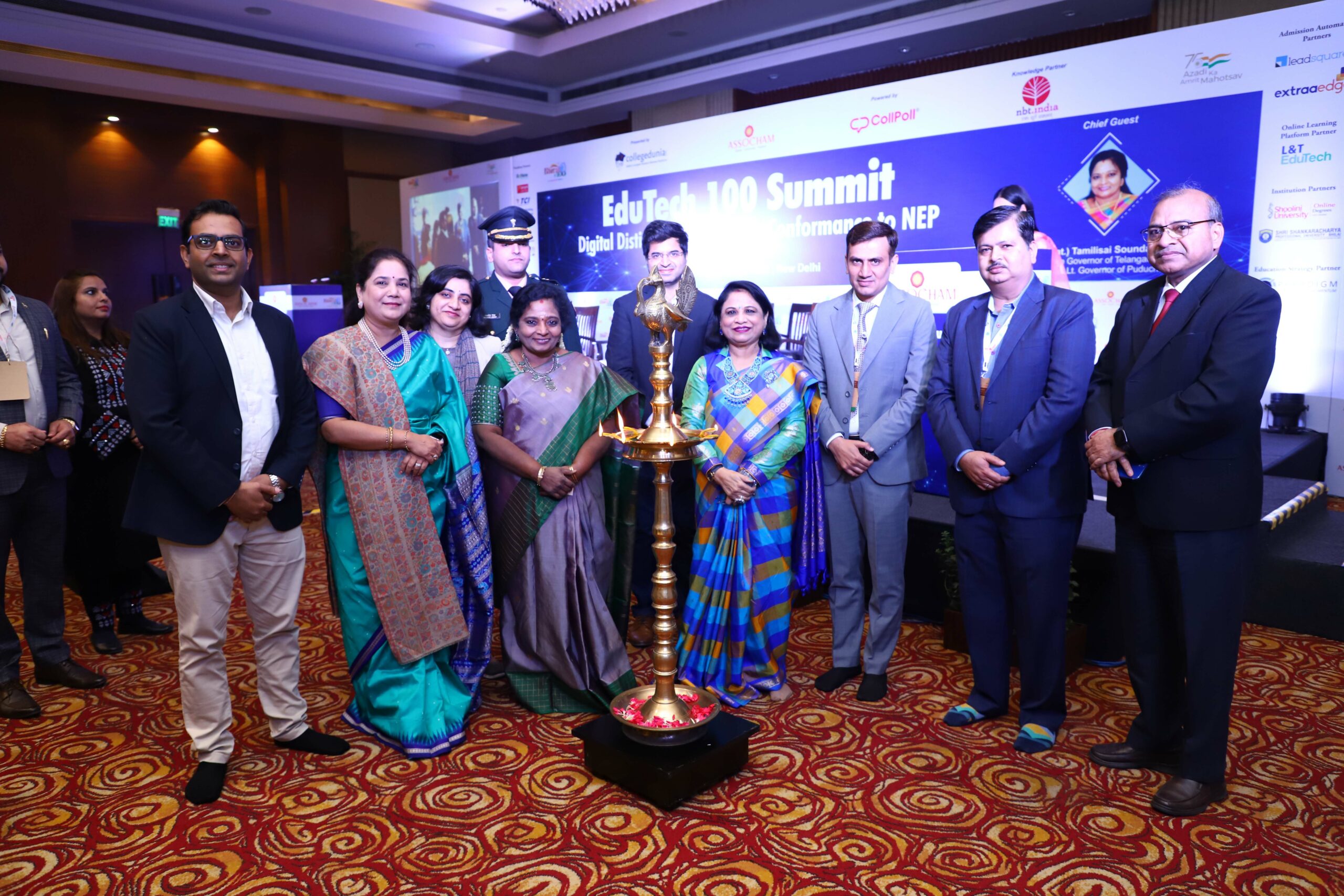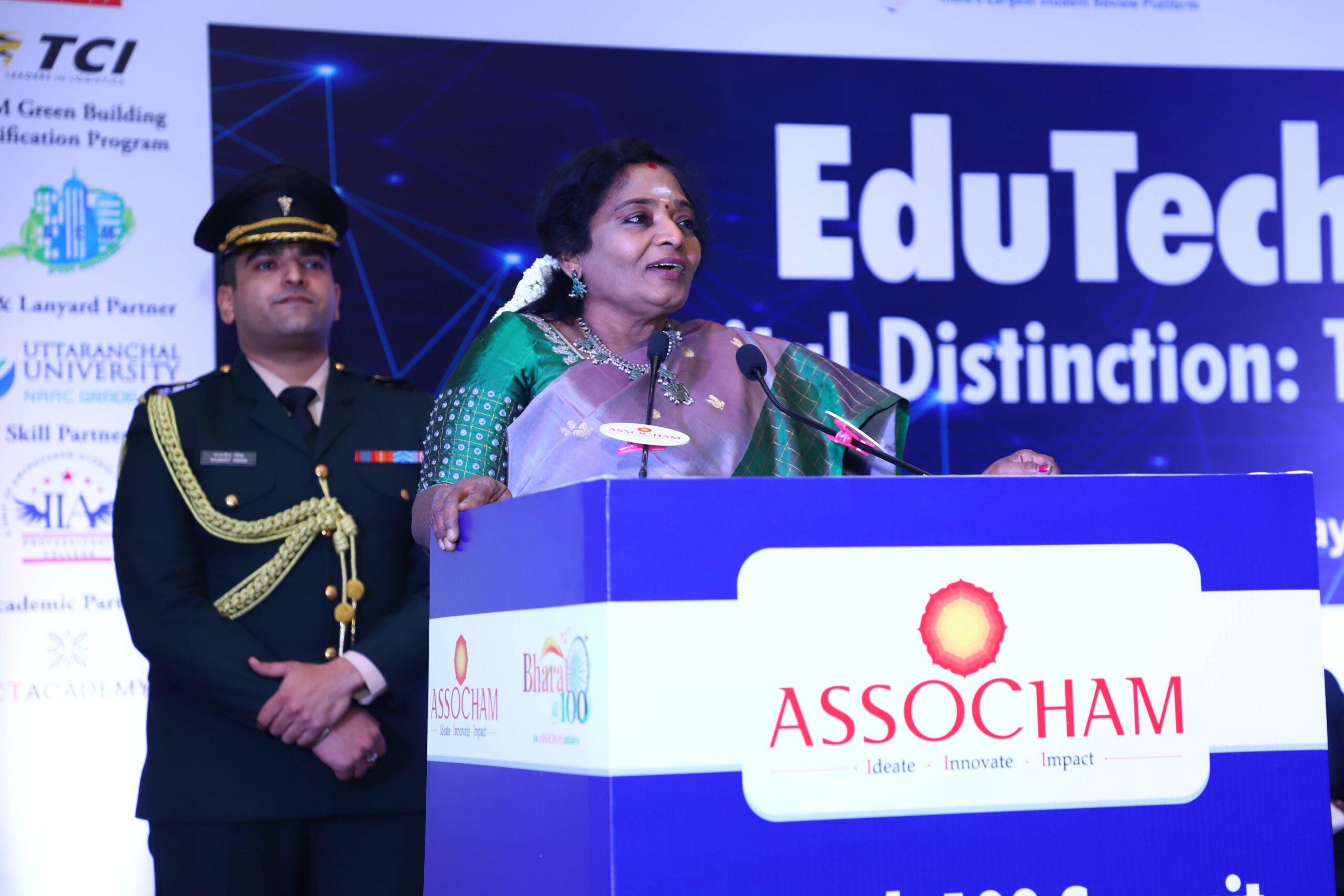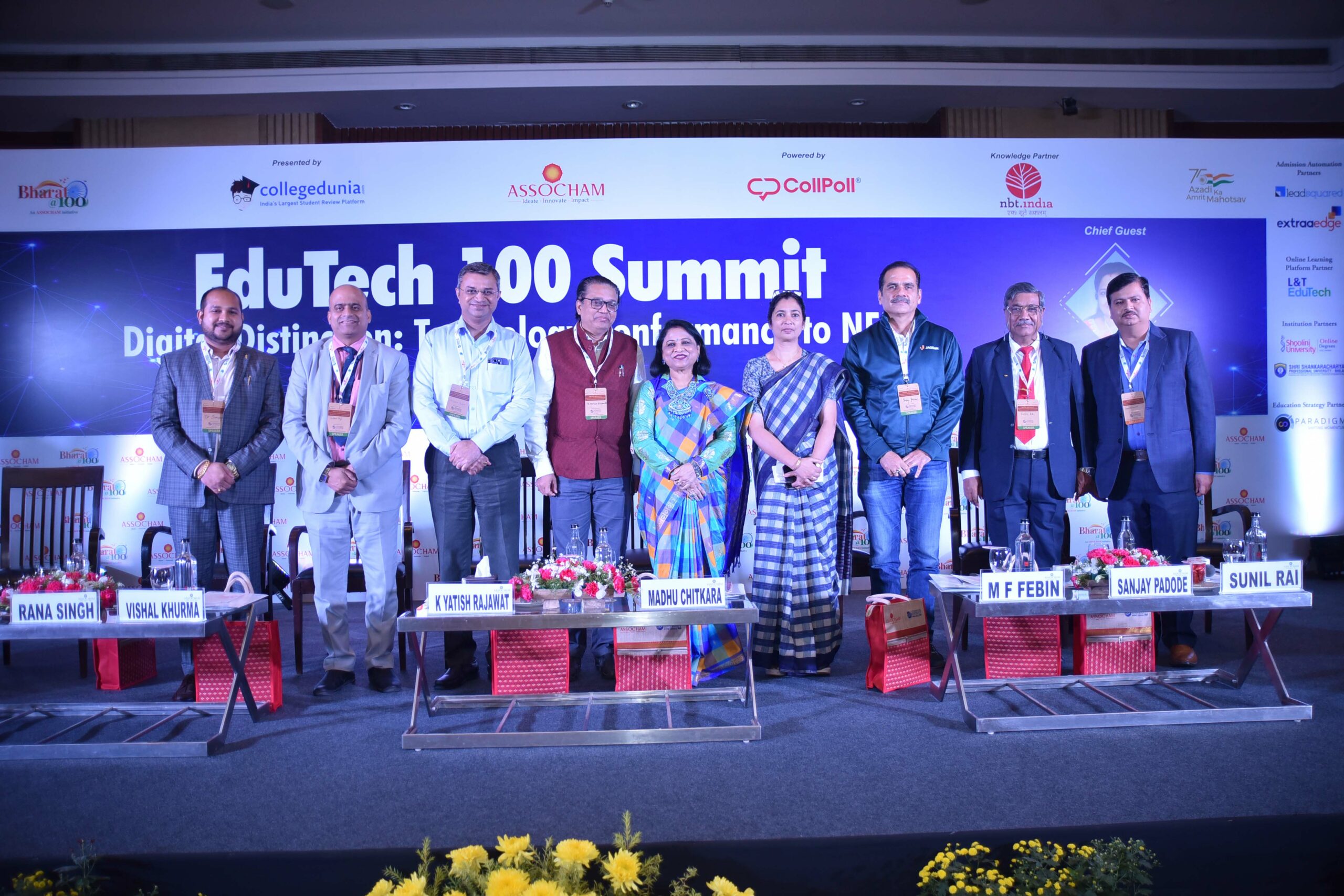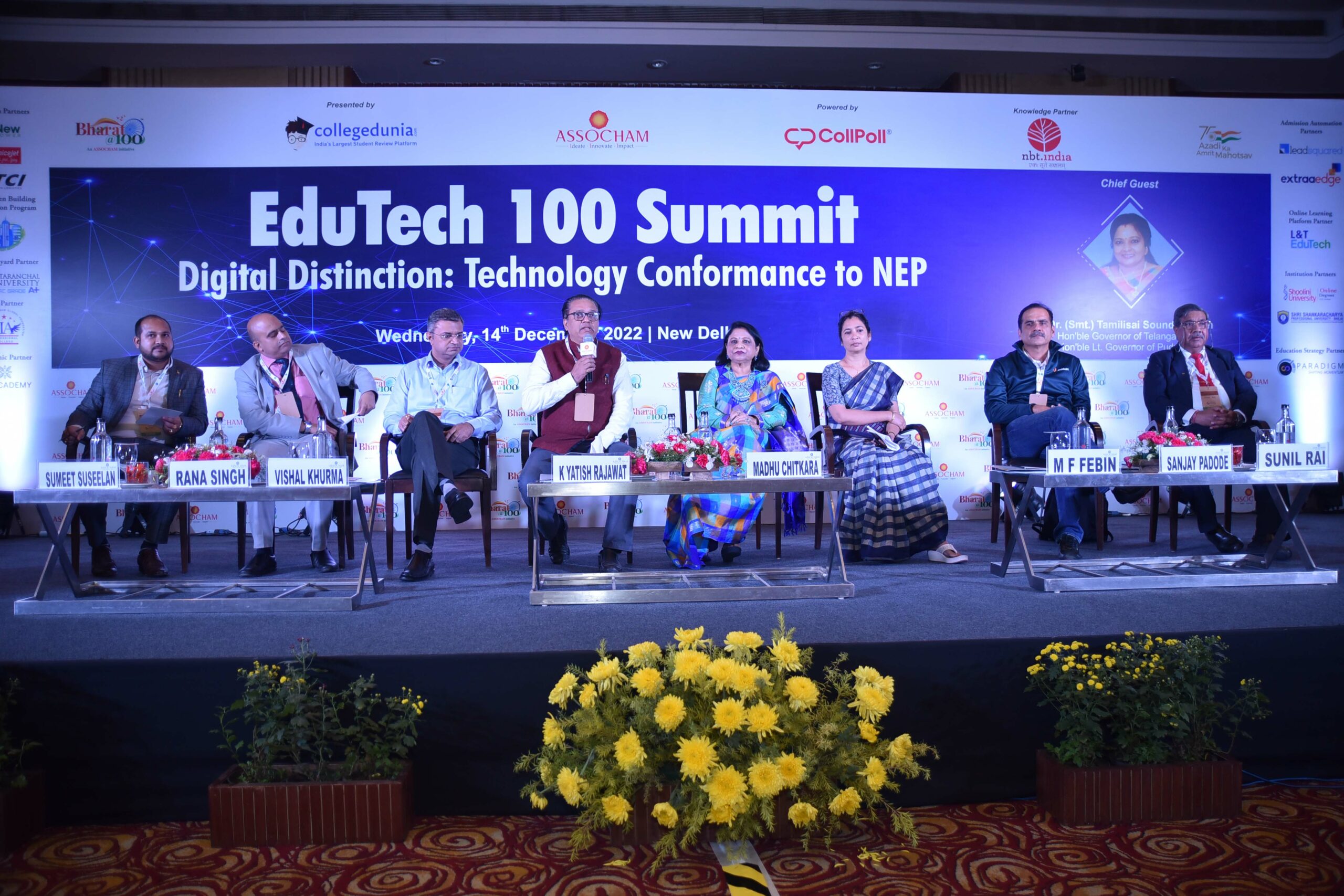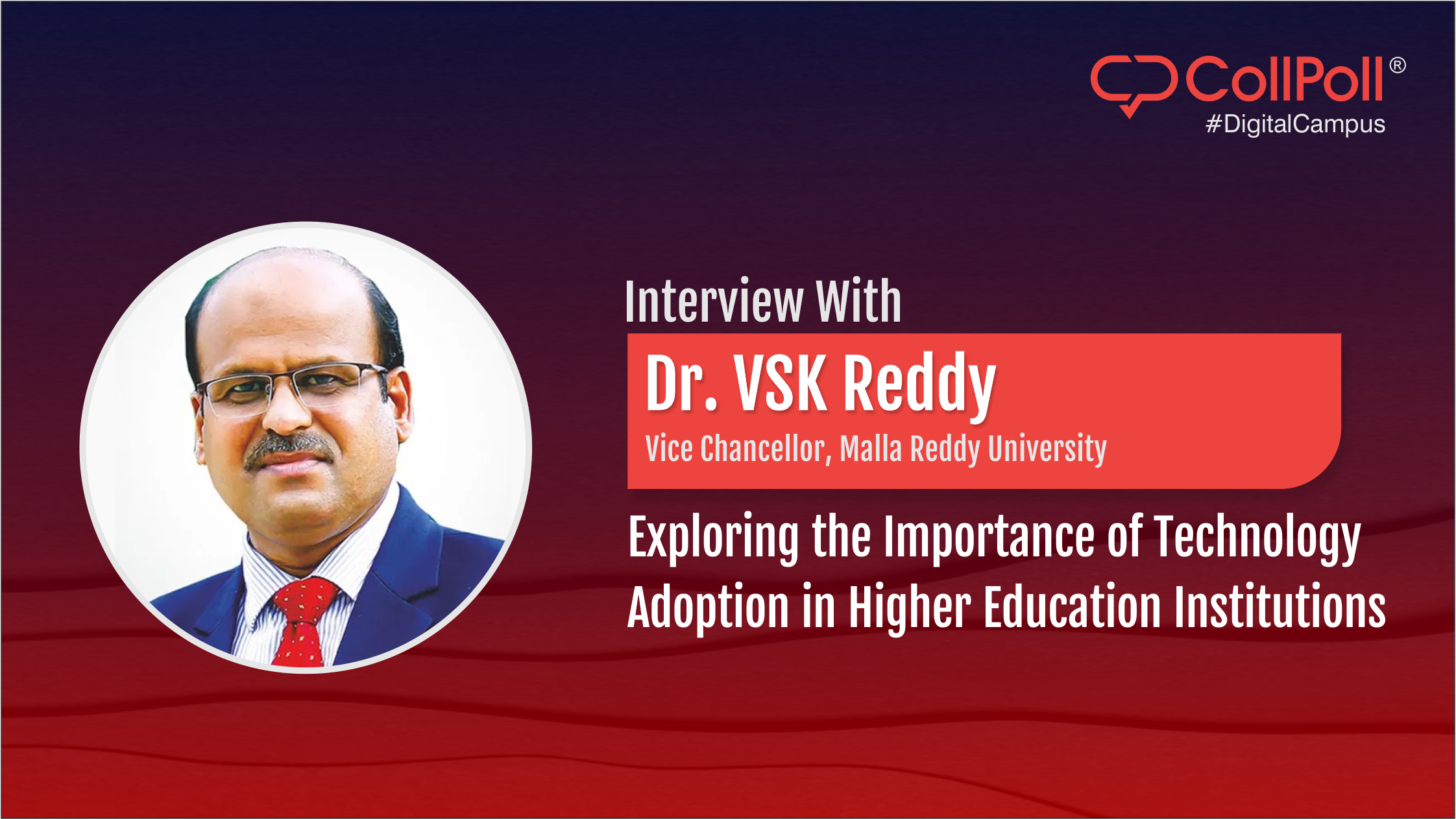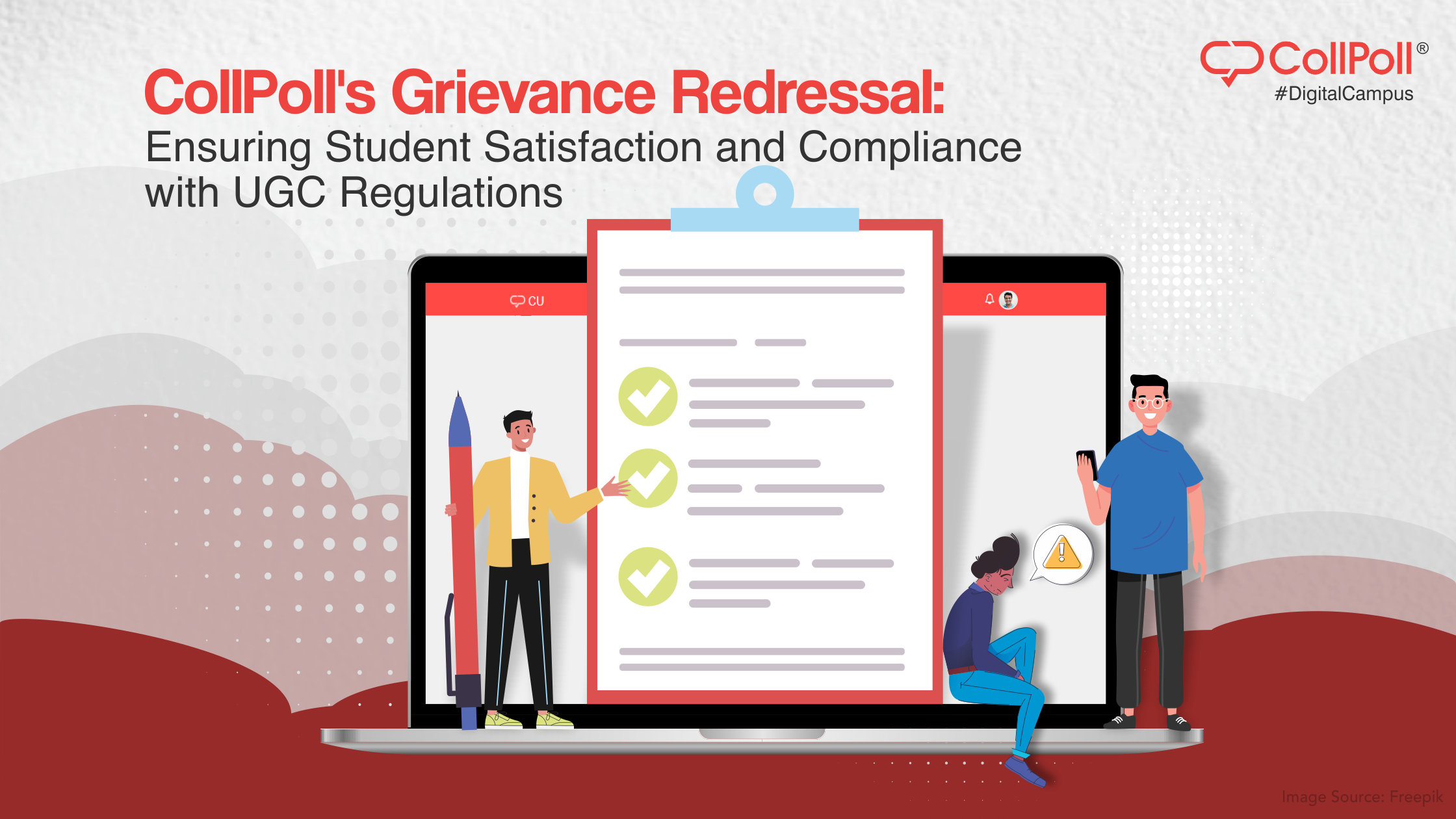Today, we live in a knowledge-oriented society, where technology can address the challenges of education by creating more open sources for better learning. The New Education Policy (NEP 2020) has evolved the way institutions offer higher education, bringing major changes at different levels.
Last week, on December 14th 2022, ASSOCHAM organised EduTech 100 Summit 2022 on ‘Digital Distinction – Technology Conformance to NEP’. The event was powered by CollPoll and witnessed the enthusiastic participation of academicians, educationists, and leaders from the tech world. Hon’ble Governor of Telangana and Hon’ble Lt. Governor of Puducherry – Dr. Tamilisai Soundararajan was the Chief Guest of the summit, along with the presence of other dignitaries such as Prof. Rajive Kumar, Member Secretary, AICTE, Mr. Yuvraj Malik, Director National Book Trust India, Ministry of Education, Dr. Madhu Chitkara, Pro-Chancellor, Chitkara University & Co-Chairperson, Assocham National Council on Education, and Mr. Hemant Sahal, Founder and CEO of CollPoll, among the other leaders and keynote speakers who shared their valuable thoughts and insights over different panel discussions.
Dr. (Smt.) Tamilisai Soundararajan addressed the session and said, “The National Education Policy (NEP 2020) is the need of the hour, it has revitalised the static education system. It has bridged the gap between education and the development of children. The use of technology has provided a lifeline to education during the pandemic, and it has also exposed the need for a level playing field when it comes to accessing online education.”
“Mental health of students is another important area where we need to work hard, we must support the children. The NEP has provisions that fill the gap as it aligns with the mindset of the children, and teachers and brings in much-needed changes to make learning an enjoyable experience for the students along with enabling equal access to education,” she further added.
The first-panel discussion of the event focused on – The Internationalization of Higher Education – and was addressed by Dr. Madhu Chitkara, Pro-Chancellor, Chitkara University & Co-Chairperson, Assocham National Council on Education, Prof. (Dr.) Mr. Sunil Rai, Vice Chancellor, UPES, Mr. Sanjay Padode, Chairman, IFIM Institutions, Mrs. M F Febin, Head- College Connect, L&T EduTech, Dr. Sumeet Suseelan, Chairman, Int. Institution of Aviation, Dr. Rana Singh, Director, CIMP, Mr. Vishal Khurma, CEO, Woxsen University, and moderated by Mr. K. Yatish Rajawat, CEO & Founder, CIPP.
Key Takeaways From the Session!
Dr. Madhu Chitkara, Pro-Chancellor, Chitkara University & Co-Chairperson, Assocham National Council on Education
- The National Education Policy 2020 offers us the platform to work on the internationalisation of higher education institutions and the NEP regulators are quite open about going international in terms of education.
- Organizing events at institutions where leaders and professors from across the world come together and interact with the students is quite imperative. This allows students to do joint research projects and opens the path of working together, co-guiding, and learning from each other.
- The Academic Bank of Credits (ABC) is a great initiative of NEP 2020, which helps students to gain credits on the basis of their learning.
Dr. Sumeet Suseelan, Chairman, International Institute of Aviation
- Today, many foreign students look forward to coming to India to learn about its culture and adopt its practices.
- In higher education institutions, classes should be based on providing students with more practical knowledge than theory sessions.
- Moreover, students should develop better skills to work in the industry tomorrow through our curriculum.
Mr. Sunil Rai, Vice Chancellor, University of Petroleum and Energy Studies
- The internationalisation of higher education institutions depends on the following three factors:
- An equal partnership involves the chance to contribute as well
- Flexibility to decide what we have to internationalise
- Enriching and enhancing nation-building through internationalisation
- Students today are making their own learning choices and it’s a great step towards growth and development.
Dr. Rana Singh, Director, Chandragupt Institute of Management Patna
- More effective steps should be taken in hand-holding foreign students when they come to our country including –
- Cultural assimilation
- Offering courses in Hindi
- Inviting foreign faculties
- The curriculum should match international norms in terms of content, coverage, level, and practice.
Mr. Sanjay Padode, Chairman, IFIM Institutions
- The internationalisation of higher education institutions is a necessity and is eminent today.
- A few points constitute internationalisation:
- Offering international curriculum
- Having international faculty
- Having international governance, accreditation, and ranking.
- Institutions should adopt internationalisation holistically to encourage it on a broader scale.
Mrs. M F Febin, Head- College Connect, L&T EduTech
- The steps that institutions take towards internationalisation should build our nation.
- The power the industry holds in converting education into an application is immense.
- The growth of students should be based on skills and must be holistic, and multi-disciplinary.
- The academia should connect with the industry and provide greater opportunities for students to learn the domain expertise.
- Every student should be given equal opportunities to learn and grow.
Mr. Vishal Khurma, CEO of Woxsen University
- We should not look at students’ talent in a singular/isolated manner. Rather, we should adopt the best practices to encourage them to develop their skills.
- Partner institutions should add value to each other and to all the stakeholders of the entire education ecosystem.
- Partnerships with other institutions should be defined by 4 broad parameters:
- Towards student exchange opportunities
- Faculty exchange programs to make the global faculty pool accessible to all
- The curriculum must be improvised every year
- Collaborative research with partner institutions
The session focused on the importance of internationalisation for higher education institutions and how institutions can encourage students’ skill development to make them future-ready.
We are thankful to all the eminent speakers, the Hon’ble Governor of Telangana and Hon’ble Lt. Governor of Puducherry – Dr. Tamilisai Soundararajan, and the entire Assocham team to organize such a fruitful and insightful discussion. Together, we can foster a culture of development and skilful growth for students and all the other stakeholders!
Follow us on LinkedIn for more stories & updates: CollPoll


